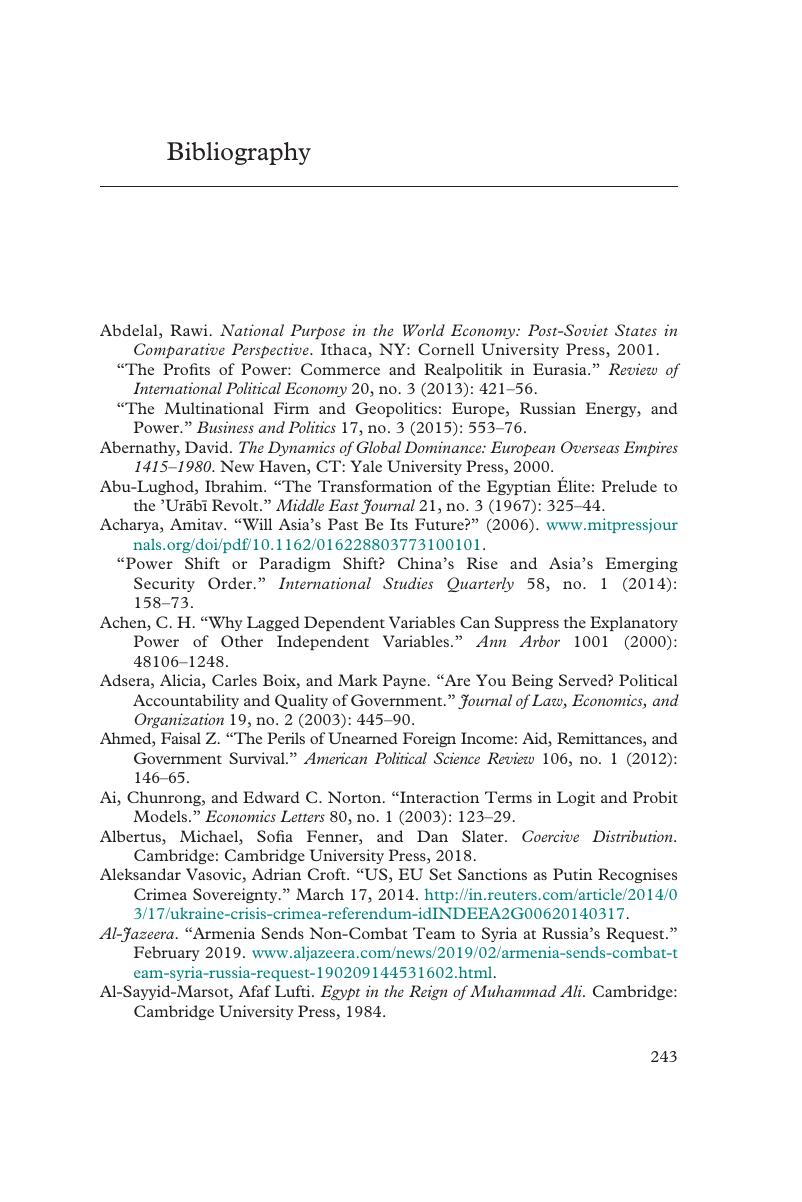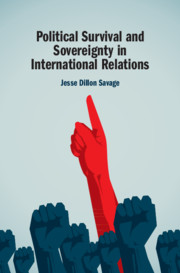Book contents
- Political Survival and Sovereignty in International Relations
- Political Survival and Sovereignty in International Relations
- Copyright page
- Dedication
- Contents
- Figures
- Tables
- Acknowledgments
- Introduction
- 1 Political Survival and the Surrender of Sovereignty
- 2 Submission, Resistance, and War
- 3 Subnational Politics and Sovereignty in Post-Soviet Georgia
- 4 Mass Politics and the Surrender of Sovereignty
- 5 European Informal Empire in China, the Ottoman Empire, and Egypt
- 6 Cross-National Variation in Sovereignty and Hierarchy
- 7 Hierarchy, Political Order, and Great Power Politics
- Book part
- Bibliography
- Index
- References
Bibliography
Published online by Cambridge University Press: 09 March 2020
- Political Survival and Sovereignty in International Relations
- Political Survival and Sovereignty in International Relations
- Copyright page
- Dedication
- Contents
- Figures
- Tables
- Acknowledgments
- Introduction
- 1 Political Survival and the Surrender of Sovereignty
- 2 Submission, Resistance, and War
- 3 Subnational Politics and Sovereignty in Post-Soviet Georgia
- 4 Mass Politics and the Surrender of Sovereignty
- 5 European Informal Empire in China, the Ottoman Empire, and Egypt
- 6 Cross-National Variation in Sovereignty and Hierarchy
- 7 Hierarchy, Political Order, and Great Power Politics
- Book part
- Bibliography
- Index
- References
Summary

- Type
- Chapter
- Information
- Political Survival and Sovereignty in International Relations , pp. 243 - 265Publisher: Cambridge University PressPrint publication year: 2020



